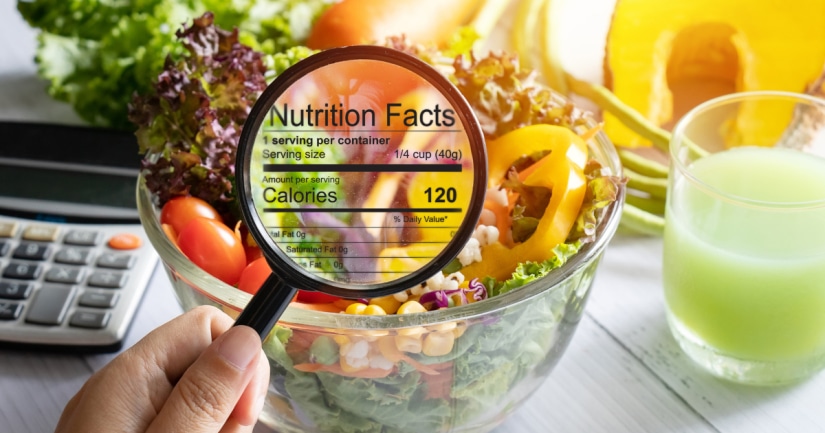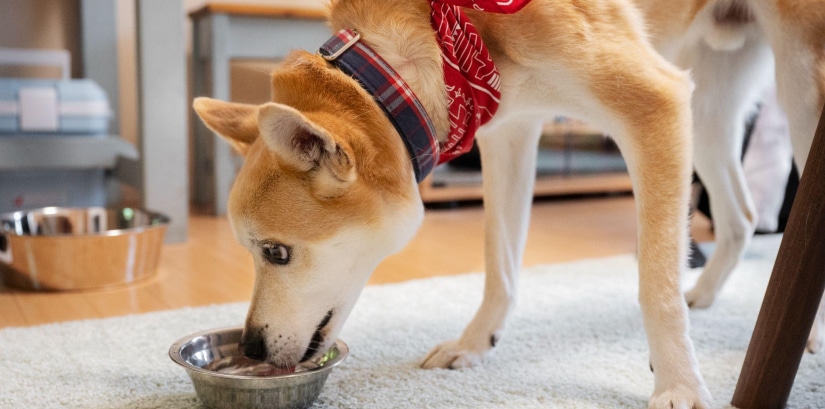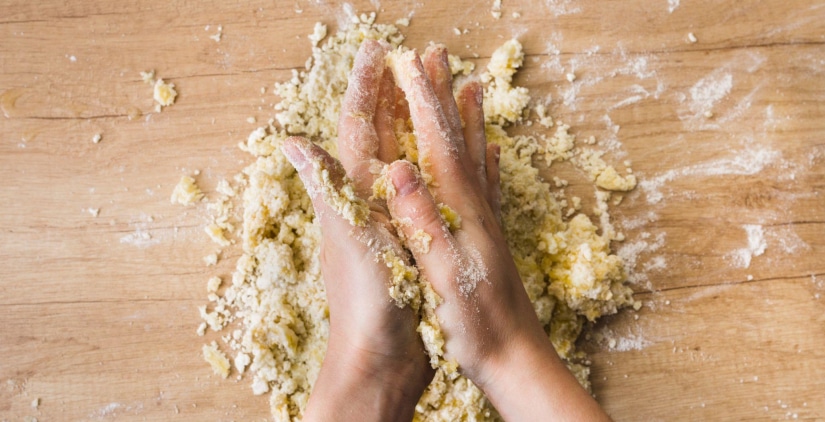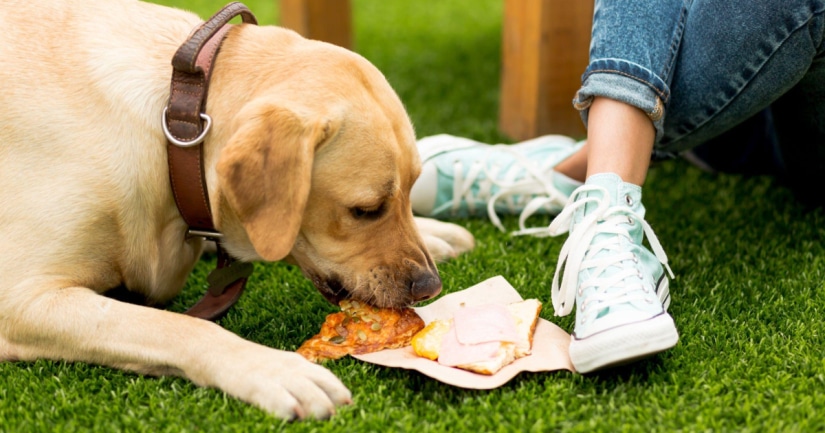Ravioli is a traditional Italian dish that has gained popularity worldwide. It consists of pasta pockets filled with various ingredients. But, when it comes to feeding ravioli to your dog, you may need to reconsider this idea.
Various types of dogs have different preferences. So, if you genuinely want to know: Can dogs eat ravioli? The straightforward answer is technically yes. Yet, many experts do not recommend it. Before explaining why vets don’t recommend it, let’s know a little bit more about ravioli. Ravioli is a pasta dish, consisting of two thin layers of pasta dough encasing a filling.
Besides, the filling can vary, ranging from vegetarian to meat-based. You can use cheese, spinach, or mushrooms for a vagitarian option. For meat-based fillings, use beef, chicken, or sausage. The pasta dough is often made with ingredients like flour, eggs, and water. This makes it soft and doughy.
Can Dogs Eat Ravioli Safely?
Dogs can enjoy ravioli occasionally, but be cautious about the ingredients. Some ravioli ingredients like onions, garlic, and certain herbs can harm dogs. These can cause tummy troubles, anemia, or other health problems.
But, to be safe, avoid giving dogs ravioli from restaurants or stores. You don’t know the ingredients of their recipe. Packaged ravioli often have preservatives, artificial flavors, and spices. It’s not suitable for your dog.
If you want to give ravioli to your dog, make it at home with dog-friendly ingredients. Use simple and natural ingredients without harmful additives.
Remember, introduce new foods slowly and watch for any bad reactions. Sometimes, your dog may show digestive issues or discomfort after eating ravioli. In that case, consult a veterinarian.
Finally, dogs can eat ravioli in moderation. But, you should also consider the ingredients and potential risks. Focus on your dog’s health by making homemade ravioli or seeking dietary advice from a vet.
Nutritional Value of Ravioli

The nutritional value of ravioli depends on the ingredients and recipe used in it. Here are some points to consider about the nutritional aspects of ravioli:
Vitamins and Minerals in Ravioli
Vitamins: The vitamin content in ravioli depends on the fillings used. For instance, if it contains vegetables, it may provide vitamins A, C, and K, as well as some B vitamins. Cheese-filled ravioli may offer small amounts of vitamins A and D.
Minerals: Ravioli can provide minerals like calcium, iron, and potassium. Calcium is present in cheese-filled ravioli, while meat-filled varieties contain iron.
Nutrition Contents In Ravioli
| Amount Per Serving | |||
|---|---|---|---|
| Calories | 186 | ||
| % Daily Value* | |||
| Protein | 6g | 12% | |
| Total Fat | 4g | 4% | |
| Total Carbohydrate | 33g | 12% | |
| Sugar | 9g | ||
| Dietary Fiber | 3g | 11% | |
| Sodium | 741mg | 32% | |
| Cholesterol | 7mg | 2% | |
| Saturated Fat | 2g | 9% | |
| Monounsaturated Fat | 1g | 0% | |
| Polyunsaturated Fat | 1g | 0% | |
| Calcium | 6% | ||
| Iron | 10% | ||
| Phosphorus | 10% | ||
| Magnesium | 9% | ||
| Zinc | 8% | ||
| Potassium | 12% | ||
| Vitamin E | 14% | ||
| Vitamin A | 3% | ||
| Vitamin C | 0% | ||
| Vitamin D | 0% | ||
| Riboflavin (B2) | 15% | ||
| Thiamin (B1) | 15% | ||
| Vitamin B6 | 15% | ||
| Niacin (B3) | 16% | ||
| Vitamin B12 | 3% | ||
| Folic Acid (B9) | 12% | ||
Comparison to Dog Food Nutrition
Ravioli vs. Commercial Dog Food:
In general, ravioli is not formulated to meet the nutritional requirements of dogs. It lacks essential nutrients that are vital for a dog’s health.
But, commercial dog food can provide the necessary vitamins, minerals, proteins, and fats. These elements can give a balanced canine diet.
Essential Nutrients:
Dog food is designed to meet a dog’s specific dietary needs. It includes the appropriate balance of proteins, carbohydrates, fats, vitamins, and minerals. Ravioli may contain some beneficial nutrients. But it is not good enough to meet the dog’s nutritional requirements.
Which Types of Ravioli Are Safe for Dogs?
If you’re considering giving ravioli to dogs, be cautious about harmful ingredients. Plain-cooked ravioli, without seasoning or sauce, can be safe for dogs in moderation. Also, make sure that t it does not include garlic or onions.
Homemade ravioli is a better choice. Here at least you’ll have control over the ingredients. Use a simple recipe. You should exclude harmful ingredients. And includes dog-friendly fillings such as lean meats, vegetables, or moderate amounts of cheese.
If you prefer convenience, you can also find commercially available ravioli made for dogs. These products usually do not have harmful additives. Always read the label and check the ingredients to confirm their safety. Remember, you should give ravioli as an occasional treat and not as a regular part of your dog’s diet.
Potential Risks of Feeding Ravioli to Dogs
Similar to ravioli, there are other foods, such as popcorn, that can pose health risks to your dog, despite having some nutritional benefits. Likewise, various types of milk, such as oat milk and almond milk, can offer different health benefits. But they can still be harmful to a dog’s health if not consumed in moderation.
If you are giving this ravioli to dogs, you should know its health risks. Here are some health risks of feeding Ravioli pasta to your dog:
Obesity Risk
Ravioli is often rich in carbohydrates and can be high in calories. Regular or excessive ravioli consumption can cause serious health issues like obesity. Also, obesity can lead to weight gain, joint problems, heart disease, and shorter lifespans in dogs.
Excess Sodium and Fat
Remember, ravioli fillings like cheese or processed meats. They may have high sodium and fat levels. Dogs have different dietary needs than humans. Excessive sodium and fat intake can lead to high blood pressure, pancreatitis.
Digestive Problems
Be cautious with certain ravioli ingredients like onions, garlic, or certain herbs. They can harm dogs and cause digestive issues such as upset stomach, diarrhea, anemia, or toxicity.
Feeding Ravioli to Dogs in Moderation

When it comes to feeding ravioli to dogs, moderation is key. However, it’s important to follow certain guidelines and incorporate them into a balanced diet.
Here are some helpful tips to keep in mind:
Serving Size: When giving ravioli to your dog, offer a small serving size. It should only make up a small portion of their meal. The exact amount will depend on factors like your dog’s size, age, and activity level.
For instance, a small dog may need a few pieces, while a larger dog can have slightly more. Avoid overfeeding and potential health risks.
Nutritional Balance: Ravioli should not be the main source of nutrition for your dog. Make sure their overall diet is well-balanced and meets their specific dietary needs. The majority of their meals should consist of high-quality commercial dog food. Consider ravioli as an occasional treat.
Making Homemade Ravioli for Dogs

Making homemade ravioli for dogs can have several advantages. Here are some points to consider.
Advantages of Homemade Ravioli
Control Over Ingredients: Making ravioli at home allows you to have complete control over the ingredients used. You can choose high-quality, dog-friendly ingredients. Avoid harmful additives or preservatives commonly found in commercial options.
Customization: Homemade ravioli can add variation to your dog’s diet. You can integrate ingredients that are safe and beneficial for dogs. It will secure proper nutritious and enjoyable meals.
Bonding and Enrichment: Preparing homemade ravioli for your dog can be a fun activity. It strengthens the bond between you and your furry companion. It also provides mental stimulation and enrichment. This happens through the process of making and enjoying homemade meals together.
Safe Ingredients for Dogs
You can cook homemade ravioli for your dogs. But you should choose ingredients that are safe for them. Here are some examples:
Lean Meats: Opt for lean meats like chicken, turkey, or beef. These are cooked thoroughly and free from seasoning or added salt.
Dog-Friendly Vegetables: Use dog-safe vegetables such as carrots, peas, green beans, or sweet potatoes. Make sure they are cooked until soft for easy digestion.
Whole Wheat or Grain-Free Pasta: Opt for whole wheat or grain-free pasta options for dogs. They are easier to digest than refined wheat flour.
Broth or Water: Use a small amount of dog-friendly broth or water. It will moisten the filling and bind the ingredients together.
Recipe Ideas:
Here’s a simple recipe idea for homemade dog-friendly ravioli:
Ingredients:
- Lean ground chicken or turkey
- Cooked and mashed sweet potatoes
- Cooked peas
- Whole wheat or grain-free ravioli sheets
Instructions:
- Cook the ground chicken or turkey thoroughly and let it cool.
- Mix the cooked meat with mashed sweet potatoes and cooked peas to create the filling.
- Roll out the ravioli sheets and place small spoonfuls of the filling onto one sheet.
- Cover with another sheet and press the edges together to seal the ravioli.
- Cook the ravioli according to the pasta package instructions.
- Let the ravioli cool before serving a small portion to your dog. Give it as an occasional treat.
Raw Ravioli Vs Store Bought Ravioli
So, Raw ravioli and store-bought ravioli, which one is better for your dog? You should consider a few factors to determine which option is safe.
- Raw Ravioli: You have control over the ingredients if you make ravioli at home. You can choose high-quality, healthy ingredients like lean meats, vegetables, and whole grains. Also, you can avoid artificial additives, preservatives, and excessive salt.
- Store-Bought Ravioli: Store-bought ravioli may contain harmful ingredients. Fillers, artificial flavors, and preservatives are the enemy. So, store-bought ravioli isn’t suitable for your dogs. Also, it may contain allergens or additives that can cause digestive issues.
Besides, store-bought ravioli is designed for human consumption. They may contain seasonings that are unsuitable for dogs.
Takeaways
Feeding ravioli to your beloved canine companion is safe. But, there are some drawbacks. Though dogs can technically eat ravioli, experts generally advise against it.
Since Ravioli often contains ingredients like onions, garlic, and certain herbs, these can hurt the dog’s health. Besides, packaged ravioli may have preservatives and artificial flavors unsuitable for dogs.
If you still want to offer ravioli to your dog, it’s best to make it at home with dog-friendly ingredients. Lastly, remember to introduce new foods bit by bit. Watch for any adverse reactions. You should give ravioli to dogs in moderation. As it can contribute to weight gain and other serious health issues.
